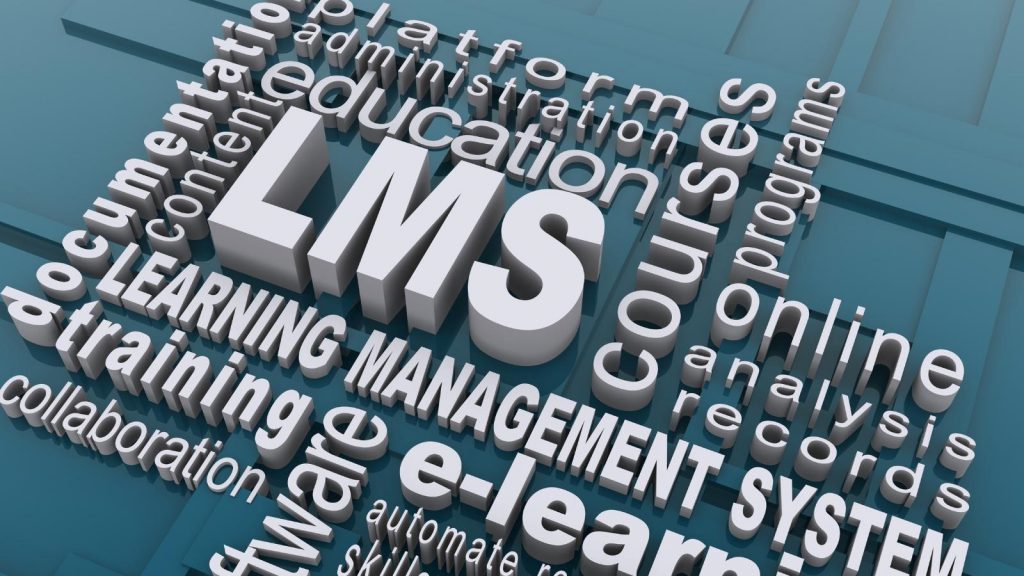Learning management systems are important to help your employees upskill periodically. The fact has been very well established now for LMS integration. Now, let’s imagine a scenario where the entire content development team has to take some copywriting lessons so that both copywriters and content writers work in cohesion and boost the company’s reach.
To make the process of learning more rewarding, you declared a cash bonus for the employees who finish the training program first. So now you have made a promise to your subordinates.
But how do you track if they are working towards getting the reward, or who is performing better? Do you maintain an excel sheet and have an employee monitor their progress?
No. It’s wasting the billable hours of the company. So how can you stay true to your promise?

Table of Contents
LMS Meaning
An LMS, or Learning Management System, is a digital platform that organizes and delivers educational content. It helps schools, companies, and other organizations track, deliver, and manage learning activities.
Users can access courses, quizzes, and other resources online, making it easier to learn at their own pace. Teachers and trainers can update materials and monitor progress, providing feedback to improve learning.
With features like forums and chat, an LMS also aids communication and collaboration, creating a more interactive and engaging learning environment. Whether you’re in a classroom or a corporate setting, an LMS simplifies managing the learning process.
The LMS Integration
LMS integration is your answer. It can track your employees’ progress, monitor their performance, and perhaps send an automated email to the concerned manager after one has completed the training program. This brings in accuracy and tracks employee performance without wasting the billable hours of the company.
A win-win situation. Partnering with a professional learning management system developer can further enhance these capabilities by providing customized solutions that align with your specific business needs, ensuring efficient and effective training programs
When you conduct even a cursory examination of potential LMS platforms, synchronization should always be a priority. Choosing an LMS that lacks the adaptability to integrate smoothly with other business software applications leaves the user dissatisfied and in search of a better platform.
But why is LMS integration necessary? How does it help you save time? What can these collaborations do to strengthen your training programs and streamline your company’s operations?
These are the questions you need answers to as a startup owner or a company manager, and this article will attempt to provide them.
Why Are LMS Integrations Necessary?
LMS integrations allow you to fully communicate your chosen learning management system with all the other enterprise pplications that your company uses to run its operations.
Simply stated, if your LMS does not connect with your CRM, big data, eCommerce, and other operating systems, you are passing up a plethora of attempts to streamline daily operations and enhance productivity. LMS integrations allow user data to be shared between such platforms.
You learn about employee and customer behavior, enhance the functioning of your training programs and marketing initiatives, and save countless hours on administrative work.
What’s the bottom line? When used correctly, LMS integrations will save you time and assist you in making informed business decisions. Let’s look at how the following LMS integrations can help your business.

Integration of APIs
An API (application programming interface) connects third-party implementations to your LMS for sharing and synchronization of information.
You’ve probably interacted with API dozens of times. Netflix uses APIs to deliver content, travel booking platforms use APIs to offer the best bargains to customers, and financial firms use APIs to accept payments, verify account information, and much more.
However, you’ve already implemented API implementation if you’ve connected Google Analytics to your LMS. Analytics, for example, provides you with an arithmetic key that you can enter into your LMS. This enables developers to engage with your data whilst still allowing you to use the platform. API integration has the following advantages:
Saving your company’s billable hours: Records or statistics can be drawn from the LMS to third-party software and vice versa. Thus, it eliminates the need to physically create, upgrade, and remove data.
Simple reporting: When third-party apps are incorporated with the API, detailed information is generated automatically.
Depending on recent results, you may enroll an employee in a training program.
Integration of CRM
The soul of your business is your customer relationship management system. It saves valuable data about customer behavior, and how your customer support executives communicate with them and recognizes future business opportunities for growth. The significance of assimilating your LMS with a CRM cannot be overemphasized.
CRM-LMS integration has the following advantages:
- When you build a customer account in your LMS, all contact details are instantly transmitted to your CRM.
- Order tracking is applicable as soon as your clients buy an item.
- View customer support information, purchase behavior, and records of all conversations with your customer service team in a single location.
Integration of eCommerce with LMS
eCommerce API integration is critical if your company deals with a large volume of online learners or is considering doing so. The ability to market, sell and deliver your training programs will be a major challenge without eCommerce assimilation.
The following are some of the advantages of eCommerce integration:
- Email Marketing: By incorporating an email tool like MailChimp, you can manage contact details, create advanced advertising campaigns, and obtain insights from your ultimate marketing initiatives.
- Tax and price rules: Apply different tax and price rules for an independent or particular set of consumers based on buying quantity, destination, and other factors.
- Automation: Simplify and automate processes such as account creation, course enrollment, and course accomplishment.
- Buyer-friendly Interface: You have roughly 10 seconds to capture the attention of the customer. A well-designed and simple-to-use online store can enhance the user experience and increase the probability that a visit to your online platform will result in a lead becoming a customer.
- Secure Payments: Your customers will appreciate the ability to complete transfers without leaving your website.
Integration of Single Sign On (SSO)
We are sure you have been asked to log into a website using your acebook or Gmail details. Haven’t you? If so, you’ve probably seen the benefits of SSO assimilation and verification.
An LMS login offers an effortless and easy to operate. So much so that you probably don’t hesitate when asked to use the login details of one account to access an entirely unconnected website.
However, SSO support in your LMS rewards you, your clients, and all members of your company. It simplifies access to online learning, CRM, predictive analysis, video calls, and other services.
Therefore, let the single sign-on feature be the most preferred way to unlock all virtual doors in your organization.

The Advantages of SSO Integration
- Employees and students benefit from a streamlined work process throughout all web platforms by using a single login and password.
- First and foremost, when users reuse passwords across various platforms, security flaws are far more likely to happen. This risk is less by SSO technology.
- IT departments can predict fewer calls from unhappy employees who have been “locked out” of their accounts.
Final Words: LMS Integration Benefits
A synopsis of the most important benefits of LMS integration would be:
- There is an easy transformation between your xxternally hosted learning resources and LMS.
- Data and trend analysis and documenting become easy and on a real-time basis.
- Customer data is synced throughout the company.
- eCommerce and LMS collaborate to improve the buying experience.
By now, you must have understood how important LMS integration is for your business. It saves your employees from doing the boring and unproductive work of data entry, but at the same time gives you real-time data about your customers and employees.
Lastly, have you used LMS Integration in your online business? I’d love to hear more about it in the comments below.
- Rebranding Tips for Rebranding Your Blog (Without Losing Trust or Traffic)to Your Blog - February 3, 2026
- How to View Private Instagram Accounts Anonymously — Traditional Methods and Proven Tools - February 2, 2026
- Facebook Marketing Mistakes to Avoid in 2026 (and What to Do Instead) - February 1, 2026



